Happy Tuesday! The Democratic National Convention is sure to generate a lot of news, but none of it will be as important as the Dispatch Politics crew’s verdict on Chicago deep-dish pizza.
Quick Hits: Today’s Top Stories
- Vice President Kamala Harris made brief, surprise remarks on the first night of the Democratic National Convention, which extended well past midnight on the East Coast after speeches from high-profile Democrats, including New York Gov. Kathy Hochul, Commerce Secretary Gina Raimondo, Rep. Alexandria Ocasio-Cortez of New York, 2016 Democratic presidential nominee and former Secretary of State Hillary Clinton, Sen. Raphael Warnock of Georgia, First Lady Jill Biden, and Ashley Biden, who introduced her father. President Joe Biden spoke at 11:30 p.m. EST, after prime time on the East Coast. The president’s remarks focused on his record, only briefly mentioning the events that led him to step back from the presidential race. “All this talk about how I’m angry at all those people who said I should step down, that's not true,” he said during the roughly 45-minute speech.
- U.S. Secretary of State Antony Blinken announced on Monday that Israeli Prime Minister Benjamin Netanyahu had agreed to a ceasefire and hostage-release proposal after Blinken spoke with Netanyahu and Israeli President Isaac Herzog in separate meetings earlier in the day. “The next important step is for Hamas to say yes, and then, in the coming days, for all the expert negotiators to come together to work on clear understandings on implementing the agreement,” Blinken said in a press conference. Late Monday night, however, a Hamas official claimed the proposal Netanyahu agreed to was “not what was presented to us, nor what we agreed on.”
- Hamas and Palestinian Islamic Jihad claimed responsibility on Monday for an explosion near a Tel Aviv synagogue on Sunday that occurred just an hour after Blinken arrived in the Israeli city. The blast killed one person—the attacker, who appeared to be a man carrying a backpack filled with explosives—and injured one bystander. According to an Israeli government spokesperson, the bomb detonated before the attacker was able to reach a more heavily populated area. The groups said that the attack was a joint operation and that further attacks would be forthcoming as long as “the occupation’s massacres and assassination policy continue,” a reference to the recent assassination of Hamas leader Ismail Haniyeh in Iran, widely believed to have been carried out by Israeli security forces.
- Ukrainian officials said Sunday the country’s forces had destroyed or damaged a total of three bridges in the Kursk region of Russia, potentially cutting off retreat routes for Russian forces defending against Ukraine’s two-week-old offensive. The bridges are the only man-made crossings over the Seym River in a Russian-held region that lies between Ukrainian forces and the Ukrainian border. By denying Russian forces the ability to easily be resupplied from, or withdraw over, the Seym, the Ukrainian military is threatening to encircle Russian formations or force their retreat. Meanwhile, Ukraine ordered new evacuations for its city of Pokrovsk—located in the country’s eastern Donetsk Oblast—as Russian forces slowly advance through the region toward the city where more than 50,000 civilians currently reside, according to Ukrainian officials.
- Attorneys general from 10 states joined the Department of Justice’s antitrust lawsuit against Live Nation-Ticketmaster on Monday, accusing the ticket sales company of monopolizing the live entertainment industry. In total, 39 states—plus Washington, D.C.—have now signed onto the DOJ’s legal challenge, initially unveiled in May. “Live Nation (and its subsidiaries like Ticketmaster) has inserted itself into nearly every corner of the live music industry, which inures to the benefit of Live Nation, but comes at a real cost to fans, artists, venues, and to the competitive process more broadly,” prosecutors wrote in the indictment amended on Monday.
- Former GOP Rep. George Santos of New York—who in December became the sixth-ever member of Congress to be expelled—on Monday pleaded guilty to two felony criminal charges related to wire fraud and aggravated identity theft. The plea deal means Santos will not go to trial to face the 23 felony charges brought against him stemming from a New York federal grand jury’s indictment in May 2023 and a superseding indictment added in October that accused him of fraudulently receiving unemployment benefits, stealing campaign funding to pay his own debts and buy expensive clothing, and stealing donors’ credit card information, among other allegations. The former congressman will be required to make a restitution payment totaling more than $370,000 and could face six to eight years in prison, according to the judge’s sentencing range estimate. Meanwhile, on the same day, another federal judge threw out a lawsuit Santos filed that accused the late-night talk show host Jimmy Kimmel of copyright infringement for buying and airing personalized Cameo videos the former congressman made.
- The FBI arrested Washington, D.C., Councilman Trayon White on Monday in connection with alleged bribery payments the local lawmaker received while in office. Specifically, federal prosecutors say White—a 40-year-old Democrat representing D.C.’s Ward 8 district since 2017—made behind-the-scenes arrangements with city government company contractors in exchange for kickbacks that included cash payments totaling $156,000. The indictment hinged on exchanges between White and an employee of a D.C. contractor who was secretly working as an FBI informant and met with the councilmember on several occasions, giving White $35,000 in cash in envelopes over the course of their meetings.
Biden Passes the Torch
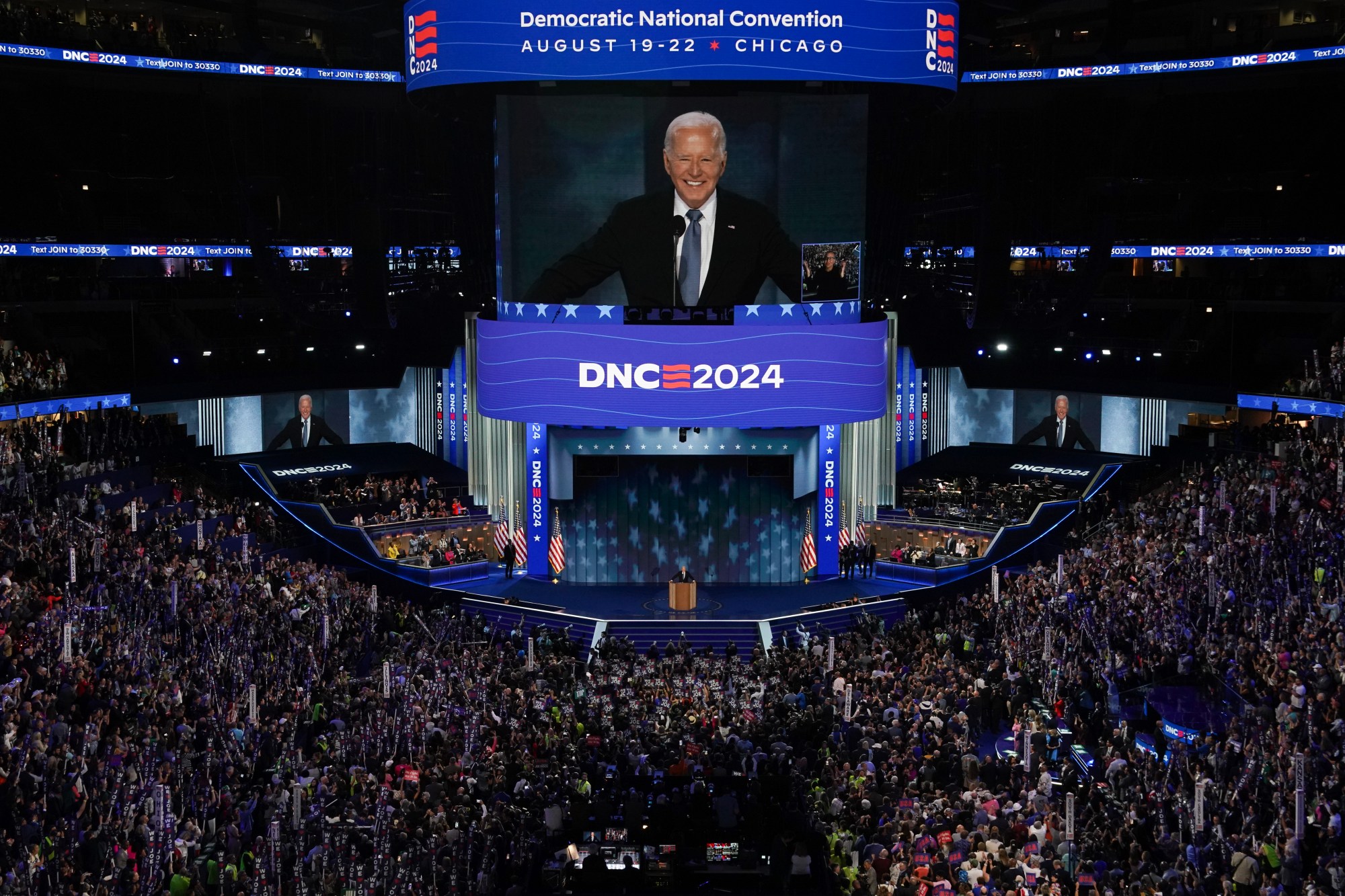
CHICAGO—At 11:26 pm ET Monday night, a teary-eyed President Joe Biden took the stage at the 2024 Democratic National Convention. Moved by his daughter Ashley’s introductory speech, the president dabbed his eyes before making his way to the podium, where he was drowned out for minutes by chants of “Thank you, Joe!”
There were other tears in the arena, including from multiple campaign staffers who were spotted by Dispatch Politics wiping their eyes as Biden began his remarks to a convention that, just a few weeks ago, was set to renominate him for a second term. Instead, the Democratic president was to pass the metaphorical torch to his vice president, Kamala Harris, the party’s new nominee. But first, Biden had some business to deal with.
Biden’s speech itself wasn’t terribly wistful—it was reminiscent of his March 2024 State of the Union address in both substance and style. He ran through a laundry list of major and minor policy accomplishments: aiding Ukraine, boosting the production of semiconductors, and signing what he described as the “most significant climate law in the history of mankind,” to name a few. And he struck a defiant and fiery tone as he condemned former President Donald Trump for a litany of offenses. “He says we’re losing. He’s the loser. He’s dead wrong!” Biden shouted at one point. Referring to a report that Trump referred to deceased veterans as “suckers” and “losers,” Biden yelled: “Who in the hell does he think he is?”
For the most part, Biden avoided the verbal stumbles that plagued him during his disastrous debate performance on June 27 and which had been hallmarks of his appearances since, though there were some exceptions—that even he seemed to acknowledge with a raise of his eyebrows.
The sitting president also avoided any lengthy discussion of his decision to bow out of the race after weeks of pressure to do so. A little over a month ago, Biden insisted that his dropping out would be an affront to democracy. “The voters—and the voters alone—decide the nominee of the Democratic Party,” he wrote in a letter to House Democrats, who were then well on their way to a full-blown mutiny. “How can we stand for democracy in our nation if we ignore it in our own party? I cannot do that. I will not do that.” On Monday night, he glossed right over that argument, declaring: “Democracy has prevailed. Democracy has delivered. And now democracy must be preserved.”
Even as he tried to sidestep the drama that ultimately resulted in him speaking on the first night of the convention instead of the last, he pushed back on reports that he and his inner circle were frustrated with figures—like former House Speaker Nancy Pelosi, who waved a “We ♥️ Joe” sign on the convention floor with the California delegation—who had pushed publicly and privately for him to step aside. “All this talk about how I’m angry at all those people who said I should step down, that’s not true,” he said.
“I love my job, but I love my country more,” Biden added.
Finally, a few minutes after midnight, Biden announced that he would “close” his late-night remarks. (“Okay, let’s go!” said a relieved delegate from New Jersey.) “America, I gave my best to you,” he said, quoting a song titled “American Anthem.”
“I made a lot of mistakes in my career, but I gave my best to you,” Biden told the crowd. He joked that he was once too young to be senator—having been elected at age 29—and is now “too old to stay as president.”
Burning Bridges
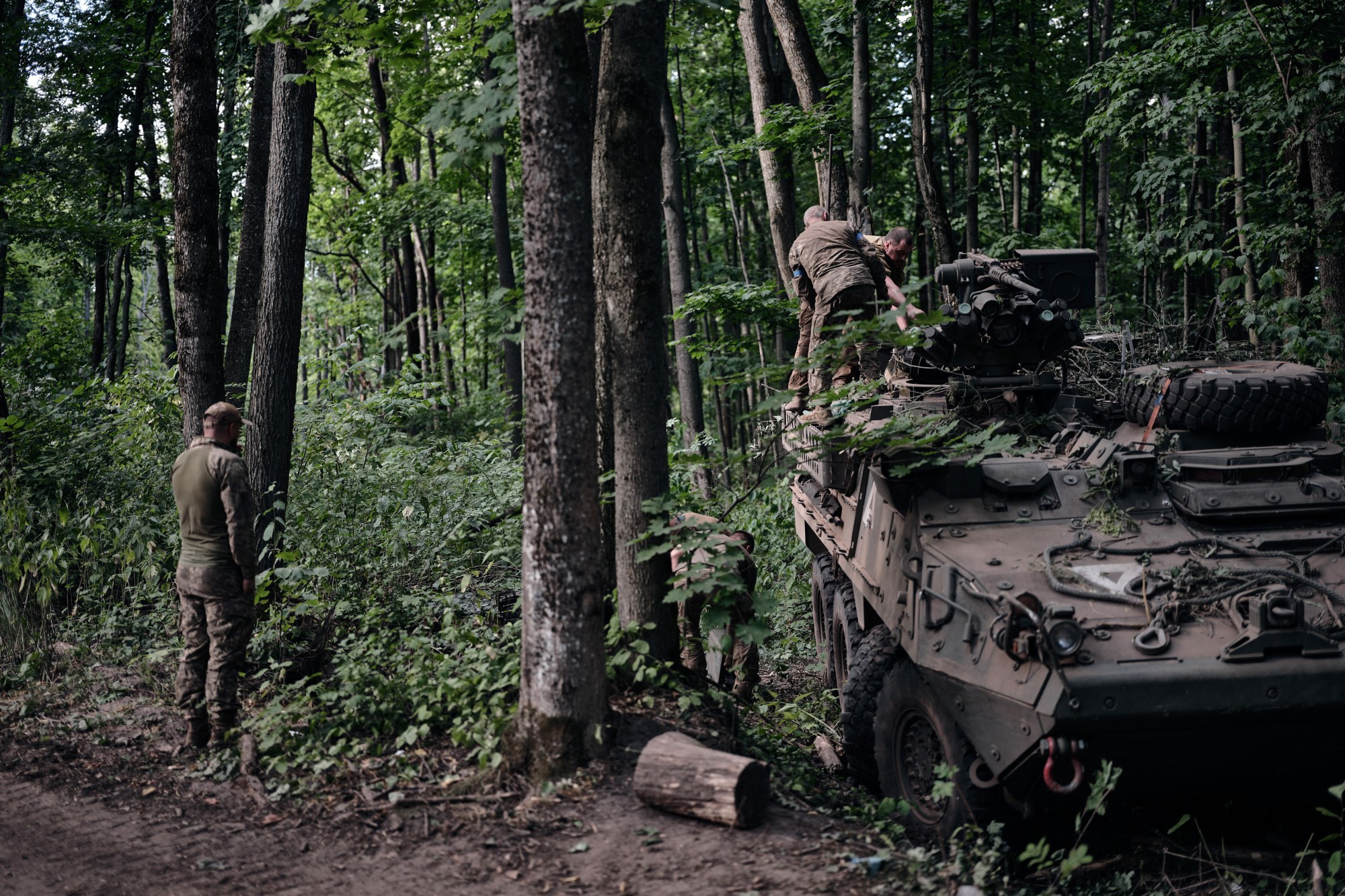
Last week, Ukrainian military officials published footage that they claimed showed the first day of fighting in the country’s surprise cross-border offensive into Russia that is now entering its third week.
Spliced with video of bombed-out buildings in what was purportedly the Russian border town of Sudzha and fire from Ukrainian artillery pieces, one clip—which The Dispatch cannot independently verify—showed what appeared to be Russian soldiers standing in the rubble of a collapsed building waving pieces of white cloth in surrender.
The Ukrainian offensive marks the first time Russia has been invaded in more than 75 years. The operational objectives of the bold gambit—which has seen Ukraine flip the script on Russia to advance across hundreds of square miles into its territory—are becoming clearer, even as it remains to be seen whether Kyiv’s gamble will pay off.
As we wrote last week, Ukrainian armed forces launched a surprise offensive on the Russian region of Kursk on August 6, catching Russian forces flat-footed at a section of the border that, up to that point, hadn’t been part of the front lines of the war. The area, through which Ukrainian troops quickly advanced, was defended by ill-prepared Russian conscripted troops serving their one year of mandatory military service and who, by law, are not supposed to see combat or serve outside of Russia.
Though its progress seems to have slowed, the Ukrainian military claimed, as of Monday, to have advanced across some 1,250 square kilometers—or about 480 square miles, roughly the size of Los Angeles. Kyiv has committed an estimated 6,000 troops to the offensive, with an additional 4,000 positioned on the Ukrainian side of the border. Ukrainian President Volodymyr Zelensky asserted Monday that Ukrainian troops controlled 92 communities in the area. The Ukrainian military established a commandant’s office in Sudzha—normally home to roughly 5,000 people—and it seems likely Ukraine formally controls the town.
Over the weekend, Ukrainian forces destroyed three bridges over the Seym River in Kursk, potentially trapping some Russian forces between the Ukrainian border to the south and west and the river to the north, with Ukrainian troops ready to press in from the east. The blown bridges could also hinder humanitarian evacuations. Russian authorities said more than 100,000 people have evacuated from the Kursk region—which has a population of just over 1 million—since the beginning of Ukraine’s operation.
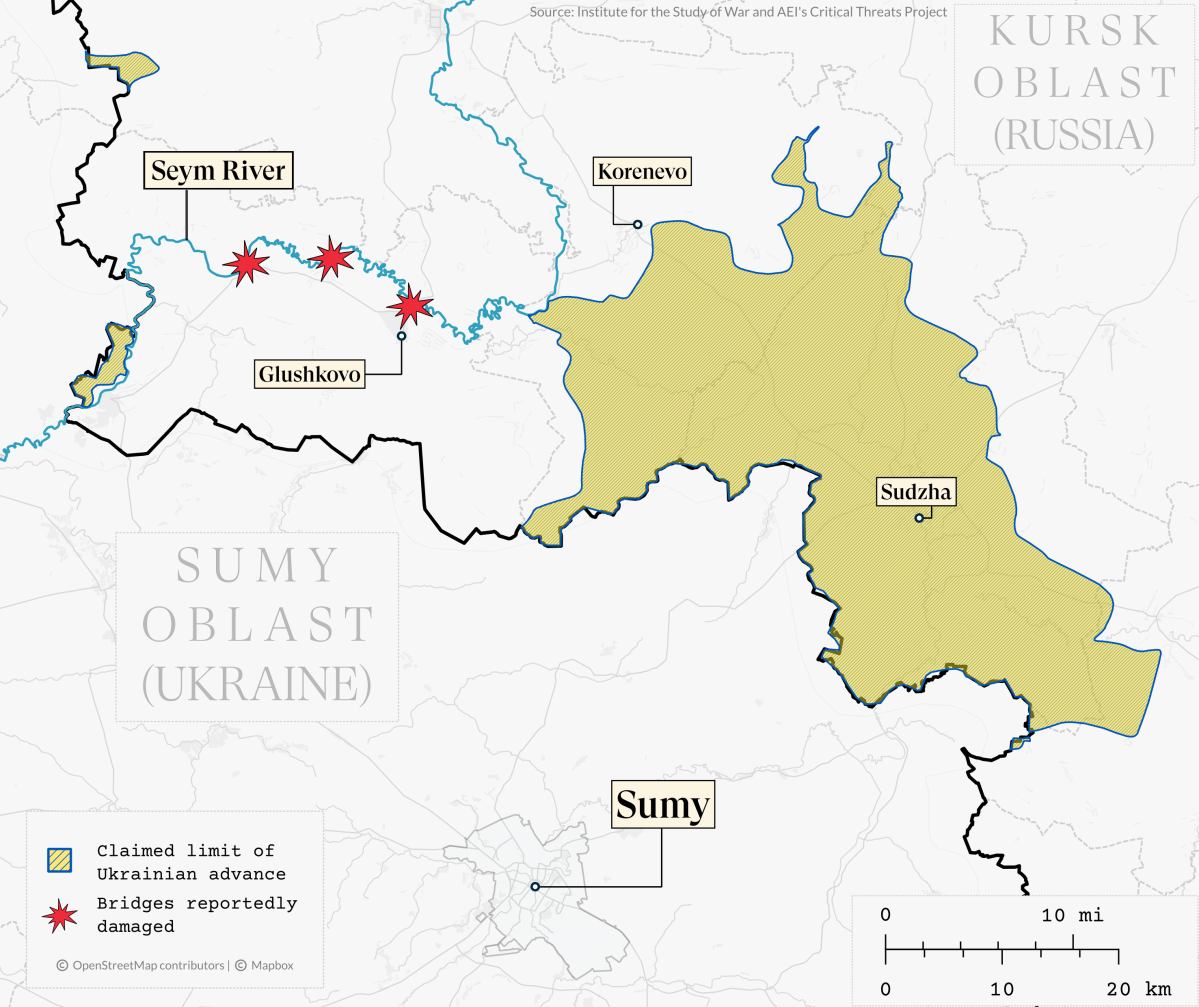
At the beginning of the offensive, Zelensky was understandably cryptic about its goals. He has since, however, been more forthright about the aims of the operation. “It is now our primary task in defensive operations overall: to destroy as much Russian war potential as possible and conduct maximum counteroffensive actions,” he said in his nightly address on Sunday. “This includes creating a buffer zone on the aggressor’s territory—our operation in the Kursk region.” Such a “buffer zone” could make it more difficult for Russia to launch strikes on Ukrainian territory.
But how long the Ukrainians can hold that territory, if indeed they want to, is anyone’s guess. “There’s no fortifications, there’s no trenches, there’s no minefields, and the Ukrainian force there is relatively small,” Dmitri Alperovitch, chairman of the Silverado Policy Accelerator, told TMD. “The Ukrainians have a hard time holding the heavily fortified territory in the Donbas against Russian offensives. So there are real questions about the ability to hold this territory that has not been prepared for defense.” A failure to secure the territory would also mean Ukraine couldn’t trade it for territory Russia has occupied in eastern Ukraine in any eventual peace talks.
Even if Ukraine can’t hold the territory, taking it in the first place may have been sufficient to replenish what Zelensky has called the “exchange fund”—presumably a reference to prisoners of war Kyiv could exchange for Ukrainian POWs held in Russia. It’s unclear how many Ukrainian POWs Russia has in custody, but it was widely assumed in Ukraine to be larger than the number held by Kyiv. Ukraine has captured hundreds—and potentially as many as 2,000— Russian combatants since the beginning of the offensive—though the true number hasn’t been publicized. Among those captured are many young conscripts, whom Russian President Vladimir Putin once promised would not be sent to the front in Ukraine. Instead, the front came to them.
Above all, the morale boost for Ukraine—which had for months been on the back foot—may be worth whatever price it pays in the short term.
Putin has many times been accused of dithering in a crisis, and the Russian president’s response to this counter-invasion by Ukraine may be another example of the pattern. He’s been mostly absent from the public eye, with the exception of an appearance early last week with his military advisers during which he seemed frazzled and read from handwritten notes on a legal pad and berated the regional governor of Kursk, who revealed just how many settlements Ukraine had at that point seized. “Traditionally, czars care very little about what happens at the periphery of Russia,” Alperovitch told TMD. “And I think the same is true of Putin. He’s certainly trying to downplay it.”
At that meeting last week, Putin did his standard saber-rattling accusing the West of using Ukraine as a puppet to attack Russia. But his non-response to foreign troops invading Russia for the first time since World War II demonstrates “that Putin’s threats about escalating if the Ukrainians or [the U.S.] did certain things are generally hollow,” said David Kramer, executive director of the George W. Bush Institute.
Though it took days, the Wall Street Journal reported last week that Russia had redeployed some 5,000 troops from other parts of the front to defend Kursk. Only one of the several under-strength brigades moved as part of the response had previously been in the Ukrainian region of Donetsk, where Russian troops are making steady progress toward the logistical hub of Pokrovsk. Civilians there were told on Monday they should evacuate in the next two weeks as Russian troops press toward the city, now just over 6 miles from its outskirts.
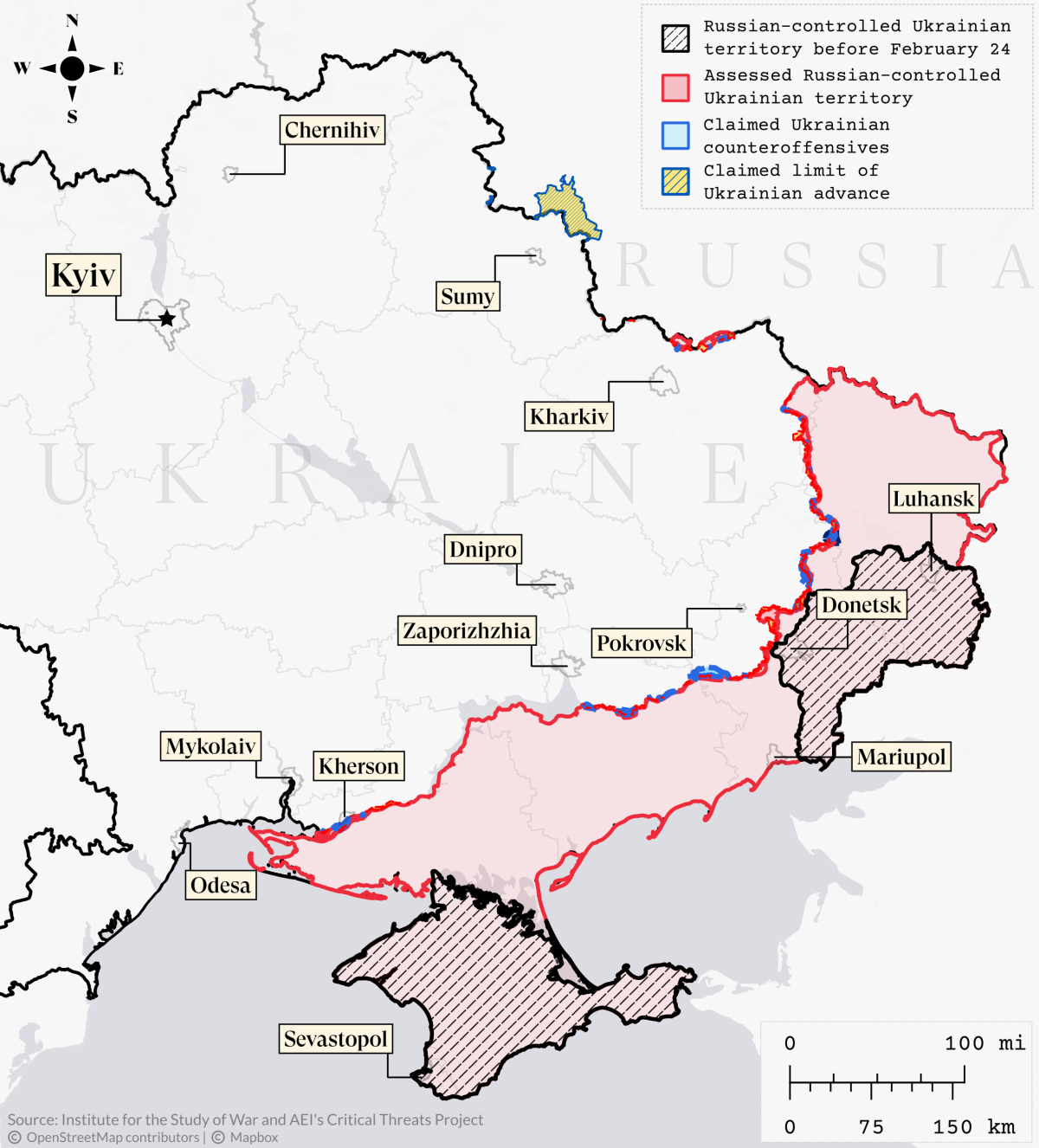
Though the U.S. was apparently caught off guard by the offensive, and the Journal reported over the weekend that the U.S. is not supplying Ukraine with intelligence to aid its efforts, Washington and the West have not been condemnatory—despite previous cautions about escalation. “It’s a good day for Ukraine,” Gen. Christopher Cavoli, NATO’s Supreme Allied Commander Europe and the head of the U.S. European Command, said last week. “It’s a good day for Ukraine because they have behaved in a militarily and operationally very clever and insightful fashion.”
But despite early successes, the bold Ukrainian move may yet backfire. It could prompt Russia to reinforce previously poorly defended borders or stretch Ukrainian troops too thinly to effectively defend both the recently captured Russian land and areas of eastern Ukraine under Russian attack. And Kyiv’s forces could still see heavy losses if it tries to defend the captured territory. “This is a huge gamble, but it’s a gamble that could pay off,” said Alperovitch. “We’ll know in a few weeks.”
Worth Your Time
- Republican politicians, from the enthusiastic to the reluctant, have given many reasons for endorsing Donald Trump, but healing the country’s political divisions is rarely one of them. McKay Coppins, writing for The Atlantic, spoke to Utah Gov. Spencer Cox, long an anti-Trump holdout, about his announcement earlier this summer that he would be voting for the Republican nominee. “Cox had grown steadily more anxious in recent years about the prospect of a complete democratic breakdown in America,” Coppins wrote. “He’d immersed himself in the literature of polarization and political violence. He couldn’t escape his fear that the bullet that grazed Trump’s ear had been millimeters away from starting a civil war.” Cox decided that declaring his support for Trump might give him the opportunity to steer the GOP away from a politics of division. “That ‘Love your enemies’ stuff—it sucks. I hate it. I wish Jesus had never said that,’ Cox told me. But if he was serious about injecting decency and compassion back into politics, he explained, he needed to find a way to work with his political enemies. … ‘To me, this is kind of the ultimate test.’”
- Is one of the most liberal cities in America becoming tough on crime? The Economist reported from San Francisco, where three of the four mayoral candidates in November’s election are pushing for tougher approaches to crime and homeless encampments. “After the Supreme Court affirmed in City of Grants Pass v. Johnson that ticketing homeless people is not a cruel and unusual punishment, [Mayor London] Breed vowed to use ‘very aggressive’ sweeps to remove tents from the street, and threatened to enforce criminal penalties for sleeping rough,” the piece reads. “[Mayoral candidates Mark] Farrell, who was interim mayor in 2018, and Daniel Lurie, a charity founder and heir to the Levi Strauss fortune, say they would declare a fentanyl state of emergency. Mr Farrell would like the Honduran drug dealers prevalent in San Francisco to be deported. Both men argue that permissiveness has attracted seedier types … ‘I will say it every day from the City Hall steps for as long as it takes,’ says Mr Lurie. ‘You do not come to San Francisco to deal drugs, to do drugs or to sleep on our streets.’”
Presented Without Comment
NBC News: ‘Lock Him Up!’: Hillary Clinton Smiles and Nods Amid Chants Echoing Trump Supporters
Also Presented Without Comment
Rolling Stone: Trump Doubles Down on Medal of Honor Dig Despite Backlash From Vets
“The Presidential Medal of Freedom, to my knowledge, I don’t think anybody suffered,” Trump said in an interview after his rally on Saturday, attempting to clarify comments made on Thursday. “People [who] get the Congressional Medal of Honor, which I’ve given to many, are often horribly wounded or dead. They’re often dead, they get it posthumously. And when you get the Congressional Medal of Honor, I always consider that to be the ultimate—but it is a painful thing to get it.”
Also Also Presented Without Comment
Politico: Dean Phillips Feels Vindicated In Chicago
It was a mission of principle. And what mattered is how I felt and my values and what I believe was so important. And what’s so joyful is everyone came around. It wasn’t about me. I was trying to be a Paul Revere, not a George Washington. It took Joe Biden to be George Washington. Giving up power before he had to. I was just trying to sound the alarm bell. It was strangely joyful.
In the Zeitgeist
Phil Donahue—longtime talk show host, eight-time Emmy Award winner, and Presidential Medal of Freedom recipient—passed away on Monday at the age of 88. These days, it’s fairly common for talk show programs to integrate the studio’s live audience into each episode—but Donahue was among the first to do it on “The Phil Donahue Show,” which ran for 29 consecutive seasons between 1967 and 1996.
Toeing the Company Line
- In the newsletters: Kevin responded (🔒) to Kamala Harris’ claim that grocery chains are “price-gouging” with a primer on how prices actually work, the Dispatch Politics team reported from Chicago on the first day of the Democratic National Convention, and Nick examined (🔒) the strange limbo in which Joe Biden currently exists.
- On the podcasts: Sarah and David are joined on Advisory Opinions by A.J. Jacobs, author of It’s All Relative: Adventures Up and Down the World’s Family Tree, to discuss his experience living by the Constitution.
- On the site: Chris explores how Trump has managed to fall behind in the polls despite a majority of voters tending to side with him on policy issues.
Let Us Know
Do you think the Kursk offensive will be a turning point in the war?






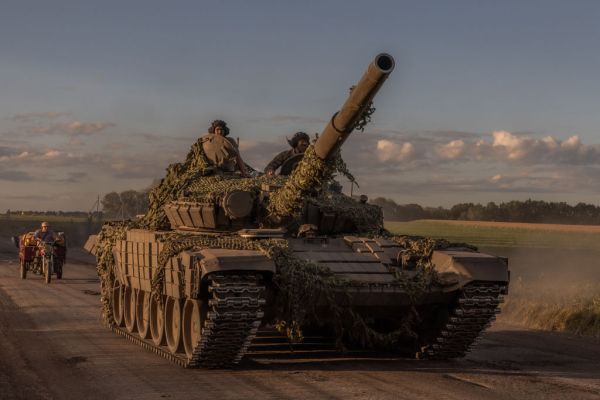
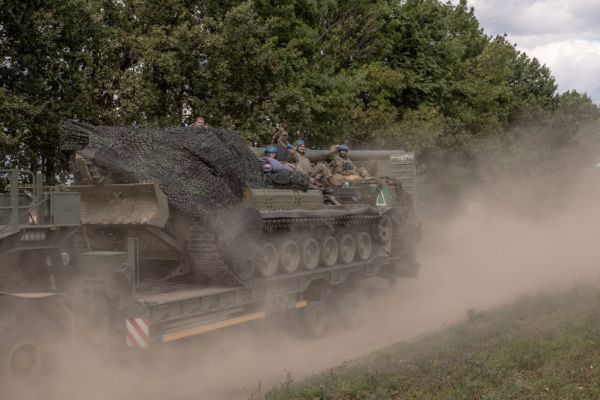

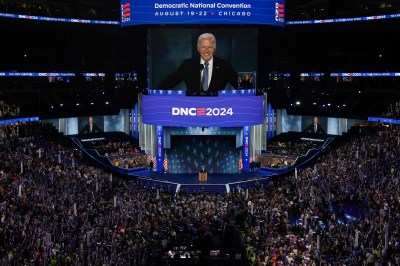
Please note that we at The Dispatch hold ourselves, our work, and our commenters to a higher standard than other places on the internet. We welcome comments that foster genuine debate or discussion—including comments critical of us or our work—but responses that include ad hominem attacks on fellow Dispatch members or are intended to stoke fear and anger may be moderated.
With your membership, you only have the ability to comment on The Morning Dispatch articles. Consider upgrading to join the conversation everywhere.